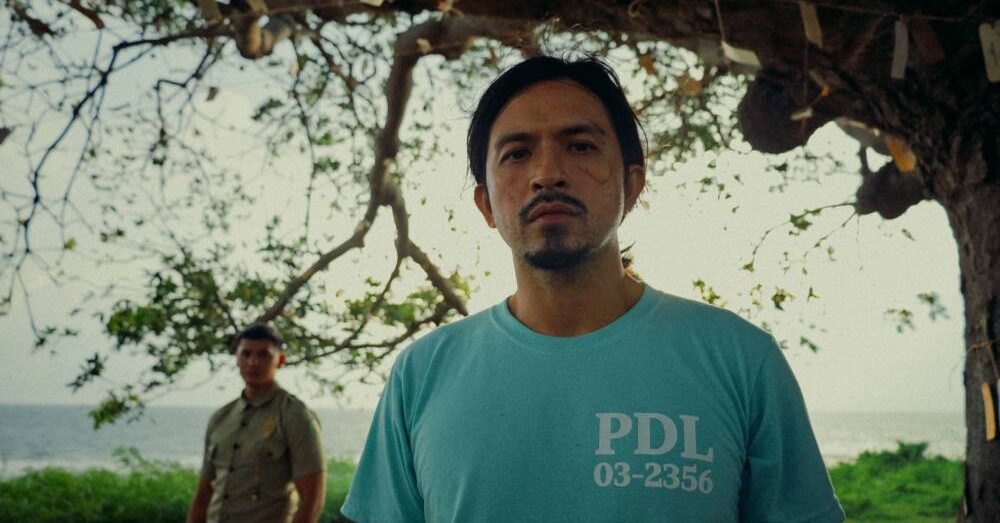Film director Avid Liongoren’s relationship with his father, painter Alfredo “Fred” Liongoren, is an enigma. The same could be said about his relationship with mother, the late gallerist Norma Crisologo Liongoren.
For one, unlike his peers who might have experienced being discouraged from pursuing a career in art, Liongoren was encouraged. He was born into it.
“A lot of artist friends seek validation or approval from their parents because the parents don’t believe in pursuing arts (for a career). It wasn’t like that for me. We had a gallery. My father is an artist, and my mom was a curator,” he said.
When he was in Grade 6, his father was invited to give a workshop on watercolor painting to animators. It was the first time he saw how animation works, and it left a huge impression on him. But at that time, he didn’t think it was something he’d do as an adult.
“I wanted a job that would let me have unlimited video games and pizza,” he said. Years later, he founded the indie film studio Rocketsheep Studio and created the hybrid live-action and animated films “Saving Sally” and “Hayop Ka.” He is now working on Carlo Vergara’s “Zsazsa Zaturnnah,” which is being coproduced by his younger sister, Hannah.
Liongoren’s parents nurtured him and his art. He grew up believing that everything he made was beautiful, because his parents were generous with praise. It gave him a happy childhood and helped him develop self-assurance, which was necessary to forge his own path in the film industry.
Difficult
However, he and his siblings also had to deal with their mom’s manic-depressive episodes and their father’s bipolar cycles constantly. While their parents were never abusive or mean to them, it made living with them difficult.

He grew up rejecting his father’s art and wanted nothing to do with their gallery. Liongoren wasn’t familiar with their artist friends; he was often referred to by family friends as the middle child they had not met. It wasn’t until the last couple of years of his mother’s life, as she battled cancer, that he got acquainted with his parents’ work.
His mother took care of many artists who remember her fondly. She was the moving force of their family, running the business and ensuring that their father was free to focus on his craft. Liongoren said his mother spoiled his father. Fred didn’t have to worry about anything because of her.
Norma was someone who wanted to do good until the very end. There were so many things she planned on doing for altruistic reasons. When she passed on, nobody else knew how to put value on their father’s works. Their gallery in Cubao also closed down for the same reason. The assets she left are now being used to care for her husband, who is also battling cancer. Her last instruction to her children was to not let their father become a “taong-grasa” (homeless person). Liongoren thought this was a joke, but the entire family takes care of his father.
Collaboration
He also learned to appreciate his father’s art. There’s a hint of pride as he talked about how his father didn’t stick to one genre. He did figurative, still life, and abstract. He theorizes that this was because of his bipolar cycles—his mind kept wandering into different things.
“One time he wanted to have a garage. He hired a mechanic for two years to work on a car that never ran before he lost interest in it,” he said. “He also wanted to design a fiberglass boat and distribute it to fisherfolk to help them. That’s how he wanted to help. He didn’t think that it was easier to paint, sell, and then donate. He is very smart, sees things, and thinks differently.”
Liongoren also talked about his father’s abstract paintings, which have received much praise.

“I still don’t understand abstract painting. Smarter people can explain it better than I could, but abstract is good because the artist could draw figurative, technical painting, and yet they choose to do abstract. A lot of people on the internet will say that they could also paint it, but you are not that artist and you did not undergo his journey,” he said.
When he was young, he didn’t think of asking his father to check or critique his art. It was his older brother, Erik, who did that. Nowadays, he enjoys collaborating with his father by finding unfinished pieces and doodling over them, mixing their distinct styles together.
He also held a private fundraising event, selling his father’s works to those who would appreciate them.
“I didn’t do it for the money. It was really because it made him happy to know that there are people who appreciate his work,” he said.
Liongoren is a unique surname. The director explained that it was because his grandfather was illiterate and misspelled it when it was registered. But it doesn’t bother him. To him, being a Liongoren is being part of a family.
He might have rejected his parents’ work when he was younger, but there are values that have stuck with him. Liongoren never took out loans, just like his mother, and he made sure his art would earn something, which was what he took after his father.
Liongoren may not have directly followed in the footsteps of his parents, but the art they nurtured in him continues to prosper.














































